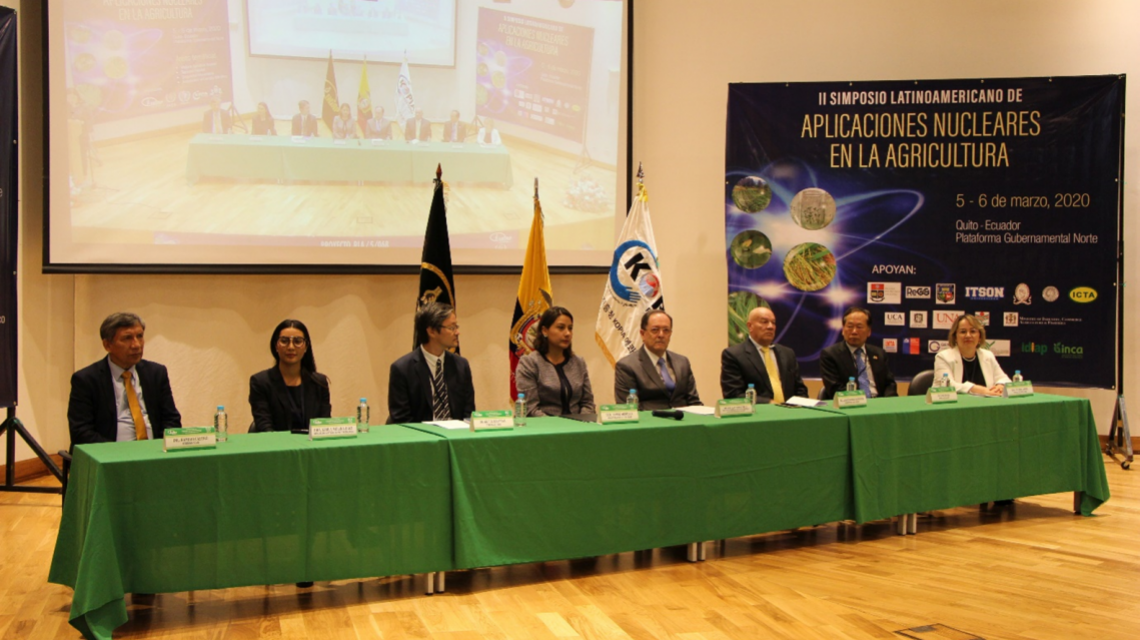New varieties of rice, tomato, quinoa and potato have been developed, with IAEA technical support and in partnership with the Food and Agricultural Organization (FAO) of United Nations, which could boost crop production and improve food security in Latin America and the Caribbean. Developed using mutation breeding techniques, these crops have improved characteristics, including pesticide- and disease-resistances.
Mutation breeding techniques rely on radiation to safely accelerate the natural process of mutation, leading to the development of new mutant lines and allowing experts to select new crop varieties that respond to local needs. “The team of researchers assembled through this project has managed to develop, through nuclear techniques, a herbicide-resistant line of rice in Brazil and six improved mutant lines, including tomato [Cuba], quinoa [Peru] and potato [Bolivia], which are in the process of registration,” said Héctor David Nakayama, a researcher at the Multidisciplinary Centre for Technological Research in Paraguay.
Launched in 2016, the regional technical cooperation project[1] harnesses technologies to strengthen food production systems to enhance productivity, resistance to stresses and resilience to climate change. Participating countries included Argentina, Brazil, Chile, Colombia, Costa Rica, Cuba, Dominican Republic, Ecuador, El Salvador, Guatemala, Jamaica, Mexico, Nicaragua, Paraguay, Peru and Venezuela. The IAEA, through the Joint FAO/IAEA Programme of Nuclear Techniques in Food and Agriculture, has been assisting Member States in the use of nuclear and related technologies to develop new varieties of plants for decades.






